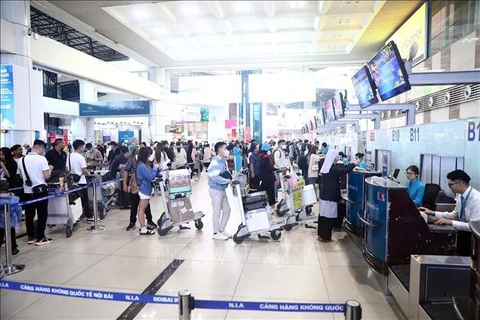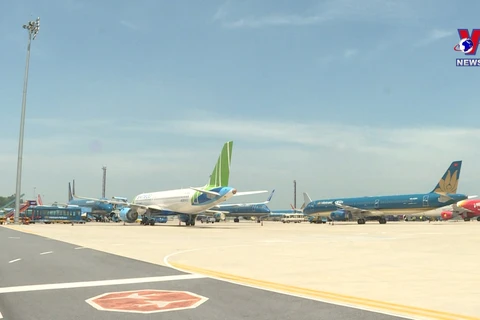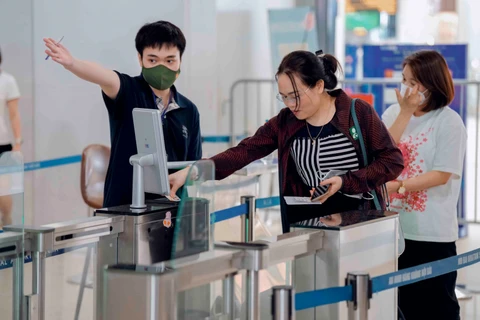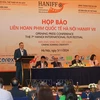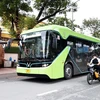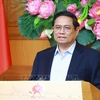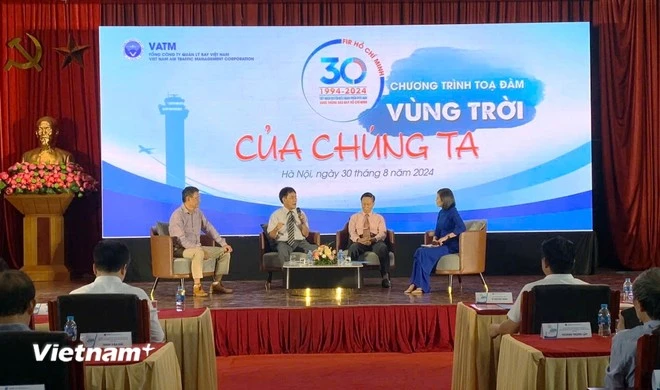
Hanoi (VNA) – By reclaiming the right to manage the Ho Chi Minh Flight Information Region (FIR) on December 8, 1994, Vietnam’s aviation sector has not only asserted the nation's position in global air traffic management but also bolstered the protection of the country's airspace.
Few, however, are aware of the tense negotiations and the relentless efforts that led to this monumental achievement.
Tension at negotiation table
At a seminar recently held by the Vietnam Air Traffic Management Corporation (VATM) to mark the 30th anniversary of this milestone, key negotiators shared their experiences from the frontline of diplomacy. Pham Viet Dung, former Chairman of VATM’s Board of Members and a pivotal figure in the Ho Chi Minh FIR discussions, recalled the high-stakes atmosphere at the negotiation table.
According to him, a FIR is a designated airspace assigned by the International Civil Aviation Organisation (ICAO) to member states, which bear the responsibility of providing air traffic services within that region. The Ho Chi Minh FIR, one of the world's busiest airspaces, was a lucrative prize, generating substantial revenue from air navigation fees. Neighbouring countries and territories, including Thailand, Singapore, and Hong Kong (China) sought to divide or reduce Vietnam's claim.
Following a decade of meticulous preparation and upgrade of equipment, infrastructure and radar systems to meet international standards, Vietnam submitted its plan to reclaim the Ho Chi Minh FIR. The proposal, backed by ICAO, was presented to the Politburo, the Government, and the Ministry of Foreign Affairs. A diplomatic note advocating for the return of the FIR was then dispatched to neighbouring countries and territories and the international community, he said.
Col. Le Ngoc Son, former Director of Operations at the General Staff of the Vietnam People’s Army, recounted the extraordinary measures taken to maintain secrecy during the negotiations.
"Our 18-member delegation to the third regional air navigation (RAN-3) meeting did not stay in the assigned hotels but at the Vietnamese Embassy in Thailand, living in a cramped 20sq.m room to ensure the utmost secrecy of our negotiation information", he revealed. The team maintained constant communication with Vietnam, receiving guidance and support to stay proactive at the negotiation table.
30 years of unblemished air traffic safety
According to Chairman of the VATM Members’ Council Le Hoang Minh, the reclamation of the Ho Chi Minh FIR has had profound political, diplomatic and national security significance. It has amplified Vietnam's voice in matters of sovereignty and territorial rights in the East Sea, underscoring the country's international standing in civil aviation and air traffic management. Moreover, it has enhanced Vietnam's capability to manage military air operations and indirectly supported the protection of the nation's airspace.
Over the past three decades, Vietnam has managed the Ho Chi Minh FIR with unparalleled success, ensuring the safe, coordinated and efficient operation of millions of flights. Remarkably, the VATM has maintained an impeccable safety record, with no incidents of flight safety breaches across nearly 12 million flights. The total revenue from air traffic management is estimated to exceed 75 trillion VND, with over 36 trillion VND contributed to the State budget./.
